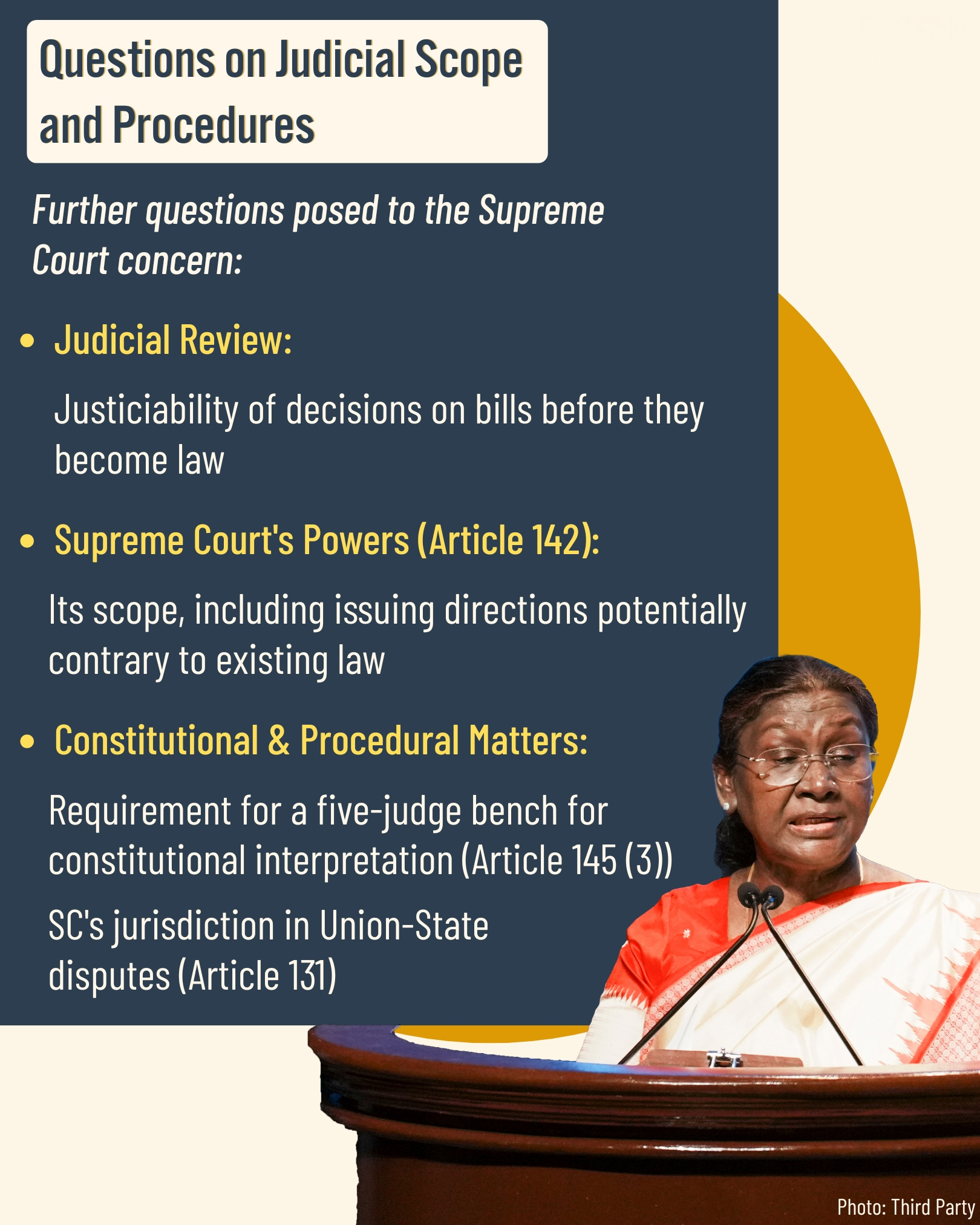Context:
President Droupadi Murmu has sought the opinion of the Supreme Court on whether the judiciary can prescribe timelines for the President and State Governors in granting or withholding assent to state Bills. This unprecedented reference, made under Article 143(1) of the Constitution, comes in the wake of a landmark Supreme Court judgment on April 8, 2025, which fixed a three-month deadline for Presidential action on Bills reserved by Governors.
The Constitutional Background:
Under Article 200, a Governor can:
- Grant assent to a Bill,
- Withhold assent, or
- Reserve it for the consideration of the President.
Once a Bill is reserved, Article 201 empowers the President to either grant or withhold assent, or to return the Bill to the state legislature with recommendations.
However, neither article specifies any timelines for these decisions. In the absence of clear constitutional directives, the delay in processing state legislation has become a contentious issue, prompting judicial intervention.
About Supreme Court recent ruling:
In April 2025, the Supreme Court ruled that:
- Governors must act on Bills within a reasonable time.
- The President should decide within three months on Bills reserved by Governors.
- In case of delay, reasons must be recorded and conveyed to the concerned state.
The Presidential Reference:
Invoking Article 143(1), President Murmu has posed 14 key constitutional questions to the Supreme Court. Key question include:
- Can courts review the discretionary decisions of the President under Article 201 and the Governor under Article 200?
- Is there any constitutional basis for judicially imposed timelines on these authorities?
- Does Article 361, which protects the President and Governors from legal proceedings, bar courts from scrutinizing their actions?
- Can the Supreme Court use Article 142 (power to do complete justice) to override or substitute decisions made by the President or a Governor?
- What options are available to a Governor when a Bill is presented?
- Is the Governor bound by the advice of the Council of Ministers when exercising powers under Article 200?
About Supreme Court’s Advisory Role:
- The Supreme Court's opinion is not legally binding on the President; it serves as an advisory opinion.
- This is only the 13th time that the President of India has invoked Article 143 since 1950, reflecting the gravity of the constitutional questions involved.
Conclusion:
The outcome of this reference will likely shape the future of legislative federalism in India. It will determine the extent of judicial oversight over constitutional functionaries and address growing inter-governmental tensions. It will further influence how Governors and the President handle politically sensitive state legislation.







